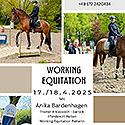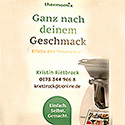
We hereby, Equestrian Center Rietbrock, declare that our company adheres to the recommendation of the German Equestrian Federation E.V (Federal Association for Equestrian Sports and Horse Breeding – Féderation Equestre Nationale FN) as described below:
Emergency plan for riding schools and boarding stables
Dear riding students, dear horse owners,
Ccrbing the corona virus is an unprecedented challenge for all of us. Clubs and companies must take measures that simultaneously ensure the health of people AND horses under the animal welfare requirements. This includes the care and movement of horses as well as animal health – always under the condition that certain hygiene rules are observed in order not to spread the virus any further.
We are all now faced with sharp and drastic requirements from the authorities and are asked to take this into account. So far, there are not uniform guidelines in all federal states. At the political level, however, the FN is committed to ensuring that horse farms and riding clubs can act in accordance with the requirements below based on the Animal Welfare Act. The responsible Federal Ministry of Food and Agriculture (BMEL) considers the following position to be understandable and justified.
- Horse friendly feeding
- Maintenance of the boxes (mucking out and littering, control of the troughs and waterings)
- Daily animal control (is the horse healthy? Does it have injuries?)
- Movement of several hours a day composed of controlled (e.g. riding / lunging) and free movement (running on the paddock / pasture) are essential for physical and psychological well-being as well as keeping the horse healthy
In the event that horses have a sufficient range of free movement and the state of training, education and health allows it, a waiver of additional controlled movement is justifiable.
- Necessary veterinary and / or therapeutic care
- Urgent supply from the blacksmith
All people on the riding facility must adhere to the following hygiene rules:
- Persons with symptoms of illness are not allowed to enter the stable / equestrian facility
- Ausschließlich die für die Versorgung und Bewegung der Pferde notwendigen Personen haben Zutritt zum Stall/zur Reitanlage
- Any contact between people must be avoided, and greeting rituals must also be avoided
The general hygiene measures for protection against infection must be observed at all times:
- Immediately after entering the facility, the sanitary area must be visited directly and your hands washed accordingly before other objects such as Cleaning tools, etc.
- Disposable towels are to be used.
- After the horses have been taken care of, the sanitary area must be visited again and their hands thoroughly washed again before starting their way home.
- The preparation and post-processing of the horses must take place with appropriate spatial distances between the people / horses.
- The agreement of veterinary appointments and visits to the smithy is subject to the coordination of the plant manager.
- The common / social rooms remain closed.
Riding schools / school horses:
Due to the cancellation of riding lessons for riding schools, the movement of the horses must be ensured by an emergency movement plan. Strict hygienic as well as regional and nationwide official requirements must be observed here. Under this condition, the FN considers the following to be technically necessary:
- The manager / responsible club representative draws up a attendance plan for the necessary persons who need access to the stable and the riding facility for the care and movement of the horses.
- Attendance times are specified in order to minimize the number of people who are in the stable / on the equestrian center at the same time.
- The individual horses must demonstrably be assigned to the riders. This has to be documented.
- The manager / responsible club representative must document the attendance times.
- Only riding students who can independently prepare, ride and care for a horse are to be provided by the responsible person of the club / company on a voluntary basis.
- Either the manager, a board member or the head riding instructor takes over the competent coordination / allocation of these “emergency movement assistants”.
- The movement of horses on the riding arena / in the riding arena requires expert supervision that guarantees safety.
- When supplying and moving the horses, all contacts with other riders and supervisors must be avoided and a distance of several meters must be maintained.
- The number of four horses per movement area (20mx40m area) is technically and hygienically justifiable, but seen as an upper limit (always depends on the size of the riding area. Approx. 200 square meters serve as orientation for each horse.)
Pension stables / private horses:
In order to ensure the supply and movement of the pension horses, the farm manager needs support from the owner or rider. Here, too, strict hygienic as well as regional and nationwide official requirements must be observed. Under this requirement, the FN considers the following to be technically necessary:
The manager / responsible club representative draws up an attendance plan for the necessary persons who need access to the stable and the riding facility for the care and movement of the horses:
- Attendance times are specified in order to minimize the number of people who are in the barn / on the system at the same time.
- The veterinarian and blacksmith are only appointed by the responsible person of the company / association.
- When supplying and moving the horses, any contact with other stallions should be avoided and a distance of several meters must be maintained.
- Spatial distances to the stable staff must be ensured in the same way.
- The number of four horses per movement area (20mx40m area) is technically and hygienically justifiable, but seen as an upper limit (always dependent on the size of the riding area. Approx. 200 square meters serve as orientation for each horse).
Otherwise, please understand that no further public traffic can be permitted on the riding facility. Persons who are not intended for the care and movement of the horses may not enter the facility.
Warendorf, March 25, 2020
(Text by FN – emergency plan)



















